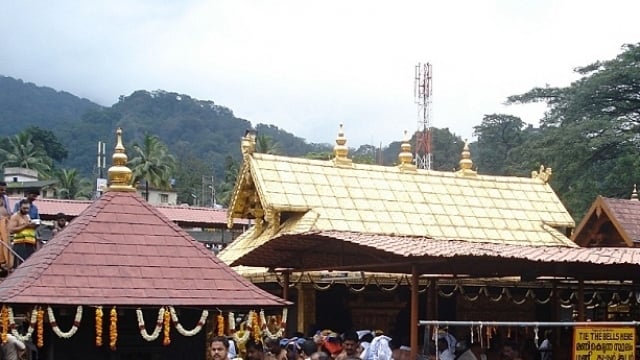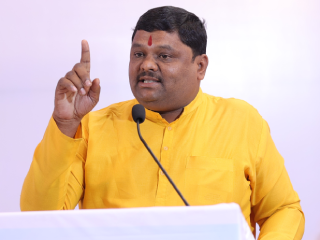
New Delhi : Devotees of Sabarimala Ayyappa temple, supporting the custom of barring entry of women in the age group of 10-50 years, on Tuesday sought to dissuade the Supreme Court from applying constitutional principles in the ecclesiastical arena to determine the validity of faith and belief.
Appearing for an Ayyappa devotee, advocate V K Biju argued before a Constitution bench of Chief Justice Dipak Misra and Justices R F Nariman, A M Khanwilkar, D Y Chandrachud and Indu Malhotra that it was virtually impossible to apply the constitutionality test to faith and belief even though it was appropriate for the court to strike down cruel social practices like Sati, devadasi system and triple talaq.
“The custom of barring women in 10-50 years age group was intrinsically linked to the ‘naishtik brahmachari’ character of the deity, who as a juristic person had the right to decide who should visit him and who should not. He does not want young women to visit Him,” he argued.
Biju faulted the petitioners, who demanded that the temple gates be opened for women of all ages, by pointing out that they had approached the court basing their pleas on newspaper articles and without personally having any experience of the Sabarimala custom. None of them have a desire to visit the temple to worship there and hence, the petitions must be dismissed on that ground, he said.
Dissuading the court from entering the ecclesiastical world of faith and belief, Biju asked the bench whether it would, in the name of enforcing a constitutional right of equality, order each mosque to have a woman imam, every church to have a woman priest and every gurudwara to have a woman sevadar.
Appearing for another devotee, advocate Gopal Shankaranarayanan said Sabarimala temple has a secular character and allows a person from any faith to visit it provided s/he had kept penance for 41 days. “It does not discriminate devotees on the ground of religion, sex or gender. It does not allow women from any faith in the age group of 10-50 years to enter the temple. So the custom is uniform for or all.”
Shankaranarayanan adopted the arguments of advocate J Sai Deepak who had on Thursday presented facts about the custom and deity’s character while coating the religious practice with a constitutional hue to make an appreciative bench acknowledge the potency of his arguments.
Deepak had said in the most Hindu households, relatives of a deceased do not visit temple for 13 days from the time of death. “Can a person file a petition saying in the time of sorrow he wanted to enter a temple for solace and that he be permitted to enter the temple? Will the court allow it? They are not allowed to enter because the bereavement renders them ‘asauch’. Asauch is not impure. It is difficult to translate in English, Closest could be polluted. If the court wants to give an omnibus finding on women’s entry into religious places without any evidence being produced by the petitioners, it would hit at the fundamental right of devotees and followers to observe religious practices peculiar to them.”
Source : TOI





